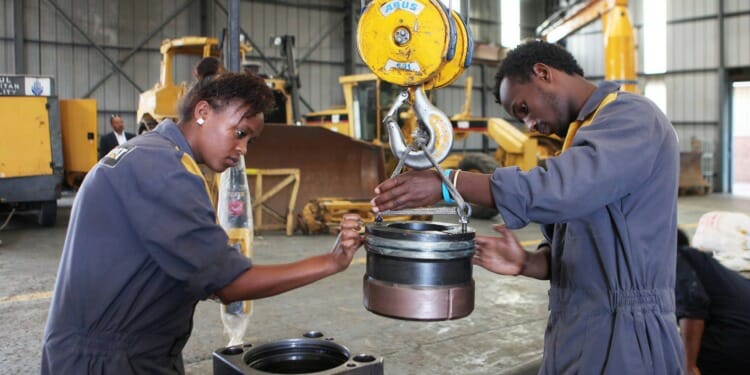From transportation to power plants, from water management to training services, infrastructure is crucial for development. Sustainable transitions in the infrastructure system, together with infrastructure, play a pivotal role in the efforts to meet the Sustainable Development Goals (SDGs). However, the infrastructure development gap remains critical, including the $1-1.5 trillion gap in developing countries.
The Agenda 2030 states the importance of joint action, and the partnership between public and private sectors is one major practice. In Q1 2021, private investment commitments in infrastructure reached $21.9 billion in 133 projects, marking a 68% increase compared to that of Q1 2020, according to the World Bank.
Can the jump in investment in the Public and Private Development Partnerships (PPDPs) lead to a jump in sustainable transitions in infrastructure, especially in developing economies?
Maja von Beckerath, an analyst at Oxford Research, finds it applicable to investigate how sustainable transitions in the infrastructure system can be promoted through collaborations between public and private actors. And in her paper “Collaborations between public and private actors in promoting sustainable transitions”, she conducted a case study and analysed the empirical data obtained from key actors taken part in HDECOVA – a PPDP project (2012-2017) in Ethiopia initiated by UNIDO, Sida and Volvo. The empirical findings have led to the conclusion that HDECOVA has had a positive effect on the transitions.

Empirical Finding 1: Through scaling up and decreasing skills gaps, HDECOVA managed to affect sustainable transitions in Ethiopia.
Interviewees from organising partners and the embassy have agreed that HDECOVA’s practices have created a ripple effect in other initiatives in technical vocational education and training (TVET). A similar venture was joined by Volvo and the U.S. Aid Agency (USAID), and similar schools have been started by Volvo and Sida in Zambia and Kenya. In the meantime, other international organisations, NGOs, and private sectors have expressed will to expand this PPDP model.
HDECOVA, with a focus on heavy-duty and industrial vehicles, satisfied the market demand for mechanics. It has also sustainably affected the labour market, as HDECOVA has influenced technicians’ and mechanics training policies in Ethiopia.
Empirical Finding 2: PPDPs have shown overriding strengths in promoting sustainable transitions in the infrastructure systems.
Due to its nature, PPDPs allow actors to collaborate with their best practices, thus improved efficiency. In the case of HDECOVA, UNIDO provided the contact channel to the Ethiopian government and policy frameworks, Volvo provided technological training support, while Sida contributed with monetary assets.
Related Articles: UNIDO Forum Engages With Pressing Pandemic Questions | Public-Private Partnership in Education: How Liberia is Forging Ahead
All partners together ensured the closeness to companies, by which new jobs are created and skilled workers are demanded. PPDPs also create a sense of proximity and shared responsibility, where better understandings are generated across sectors.
Empirical Finding 3: Nevertheless, promoting sustainable transitions in infrastructure system through PPDPs face challenges.
Firstly, complexity can be expected from collaborating with actors from different backgrounds. Stakeholders have to make sure that the objective of each actor is in line with the overall goal for the PPDPs to be effective. Secondly, PPDPs tend to depend on high growth context and high private sector activity, hence a well-thought entry point and an active role by the private sector are desired. Lastly, because systemic changes are a long-term process, the sustainability of PPDPs becomes crucial.
HDECOVA managed to connect two identified challenges for the development of economic living standards in Ethiopia: the harsh business climate, and the low knowledge level of entrepreneurship and sustainable income-generating occupations. It focused on bridging the skills gaps and created echoes in the educational and labour policies of the country.

We shall not forget that while the design of the partnership is important, PPDPs might be more suitable to certain markets and in certain transition contexts. Nonetheless, PPDPs should be supported for their contribution to sustainable transitions in the infrastructure systems. Initiatives like the Learning and Knowledge Development Facility (LKDF) dedicate their work to a better understanding and practices of PPDPs.
— —
The Learning and Knowledge Development Facility (LKDF) is a platform by UNIDO that promotes industrial skills development among young people in emerging economies. Working with the private sector through PPDPs, the LKDF supports the establishment and upgrading of local industrial training academies to help meet the labour market’s increasing demand for skilled employees, ultimately contributing to inclusive and sustainable industrial development.
Follow LKDF on Twitter and LinkedIn to be informed on PPDPs, skills development, sustainable industrial development, and more.
Editor’s Note: The opinions expressed here by Impakter.com columnists are their own, not those of Impakter.com. — In the Featured Photo: Participants in HDECOVA – a PPDP project (2012-2017) in Ethiopia initiated by UNIDO, Sida and Volvo. Featured Photo Credit: UNIDO.










